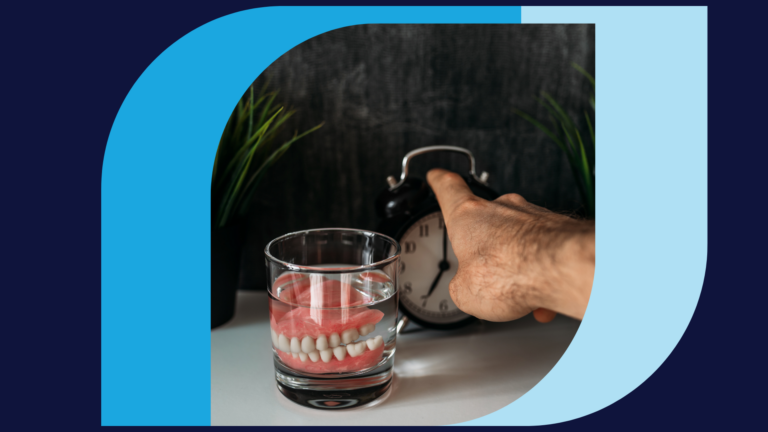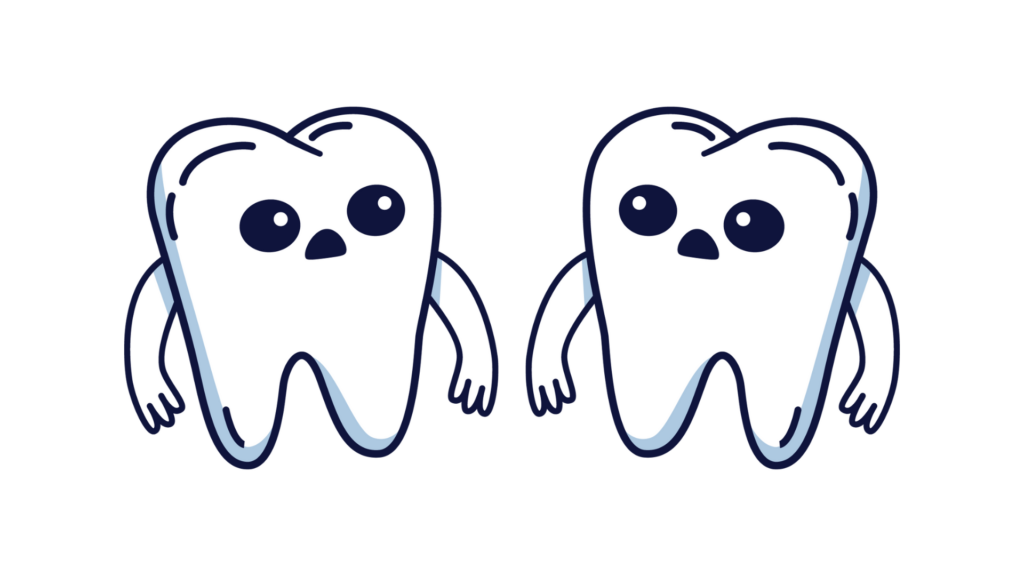
WHY ARE YOU REALLY GRINDING YOUR TEETH?
From uncomfortable pain to loss of sleep at night, we all know that teeth grinding is no picnic. But teeth grinding, also known as bruxism, isn’t just a bad habit; it’s usually a sign of something deeper. Frequent or severe grinding can also lead to worn-down enamel, fractured teeth, and persistent jaw pain.
The good news is that bruxism is treatable, and there are simple steps you can take to protect your teeth. Let’s explore the most common reasons behind teeth grinding and what you can do about it.

STRESS AND ANXIETY: THE COMMON SUSPECT
Turns out stress may also be weighing on your teeth! As two of the leading causes of bruxism, stress and anxiety can trigger a physical response in the body, including muscle tension in the jaw, which then leads to clenching and grinding at night.
If you’re greeted by a nasty headache in the morning, sore jaw muscles, or tooth sensitivity, it’s possible you’re suffering from stress-related grinding. There are a few ways to combat this, just by addressing your stressors.
If you suspect you’re suffering from bruxism, reach out to us today, and we can help find a solution.

SLEEP DISORDERS
& BRUXISM: WHAT’S THE CONNECTION?
So, if stress and anxiety can lead to you grinding your teeth at night, it’s easy to make the connection between sleep disorders and bruxism, right?
Conditions such as obstructive sleep apnea (OSA) and insomnia are, in fact, often linked to bruxism due to disruptions in breathing or sleep cycles. This can lead the brain to activate jaw movements in your sleep. Studies have shown that between 33% and 54% of people with OSA also experience teeth grinding.
Luckily, there’s no need to lose more sleep over this! A simple solution like a sleep study can help determine if your bruxism is caused by sleep apnea or another sleep disorder.

MISALIGNED BITE & ITS ROLE IN BRUXISM
A misaligned bite, or malocclusion, can cause teeth to come together in ways they shouldn’t, which can often lead to excessive clenching or grinding. This can lead to bruxism because your jaw muscles continuously overwork themselves while finding a more comfortable position.
A dentist can assess your bite and determine if orthodontic treatment, such as braces, clear aligners, occlusal adjustments, botox, or other neuromodulators can help.
HOW WE CAN HELP

If you’re experiencing bruxism, the best way to prevent further damage to your teeth is by visiting us. With just one exam, we can look for signs such as worn enamel, jaw tenderness, or tooth fractures, and help address the root cause of the problem.
From there, we may recommend a few solutions:
A Bruxism Appliance
Bite Adjustments
Orthodontic Treatment
Collaboration with Other Healthcare Providers
We’re here to help you find relief from bruxism and get your teeth back to tip-top shape. Reach out to us and today, and let’s work together to keep your mouth as healthy as possible!
If you have any questions or concerns or would like to schedule an appointment, contact us today.
Book online, call, or email us for an appointment, anytime.